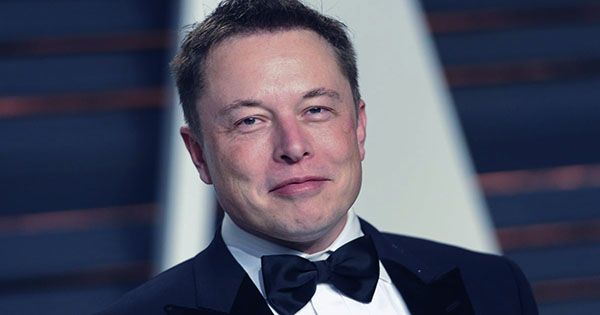Remember when Elon Musk and the head of the UN’s World Food Program got into a Twitter feud a few months ago over whether he should donate the equivalent of a few dollars (in fact, $6 billion) to help end world hunger? Have you ever wondered what happened to it? Well, it appears that the millionaire may have paid up – or may not have paid up. Actually, no one knows for sure.
What is certain is that Musk did indeed gift slightly more than 5 million Tesla shares to an unnamed “charity,” according to an SEC filing from November that was made public earlier this week. According to Bloomberg, this would equate to a $5.7 billion donation based on average share prices on the days of the transfers, making Musk the second-largest philanthropist in America last year behind Bill Gates and Melinda French Gates. That’s oddly near to the $6 billion proposed by David Beasley, the World Food Programme’s Executive Director, at the end of October last year. The timing is also perfect: the first stock transfers took place on November 19, only days after Musk’s highly publicized spat with Beasley.
“If WFP can explain exactly how $6 billion would eliminate world hunger on this Twitter thread,” Musk tweeted, “I will sell Tesla stock right now and do it.” Big words, and ones he might not have anticipated Beasley to be able to meet — yet Beasley rose to the occasion right away. In response, he tweeted, “WFP’s financial statements and operational documentation are all public.” “Independent evaluation reports, audits, and yearly global/country performance reports are also available. All of the previous ten years are available on wfp.org. You may look them up if you want — we’re an open book.”
Musk should visit with Beasley “in the field, where you can witness [the WFP’s] people, processes, and yes, technology, at work,” according to Beasley. He emphasized the organization’s decades of experience and Nobel Peace Prize, and he even provided some basic estimates to explain where the numbers came from. So, has the millionaire followed through on his promise? It’s not guaranteed, and experts believe it’s a long shot.
To begin with, the SEC document confirms that the shares were transferred “to charity,” but it does not specify whose charity. However, it appears that the payment did not go to the WFP, as the organization acknowledged on Tuesday that it had not recently received any $6 billion donations. “It remains to be seen whether WFP receives any of this money, but I am thrilled to learn that Elon is engaged,” Beasley said in a statement to Forbes.
No other charity has made any announcements that fit the bill, and Musk has not responded to calls for comment. Which leaves the money’s whereabouts a bit of a conundrum. However, there is another possibility: the stock may have been placed in a donor-advised fund (DAF). This is similar to putting money into a charity’s bank account; you put your money in, and it sits there for years until the charity decides to utilize it.
Musk is known to have used DAFs in the past, with DAFs accounting for roughly one-fifth of his total previous donations. Alternatively, the shares may have been “donated” to his personal charity, the Musk Foundation. Musk’s donations through the Foundation skyrocketed in 2021, with gifts going to such worthy causes as free education, coronavirus research, food banks, and combating climate change (it should be noted, however, that previous recipients have included “a school attended by Musk’s own children, a charity managed by his brother, a protest group fighting gridlock on Musk’s commute to SpaceX, and even an art project at Musk’s favorite festival, Burning Man,” according to The Guard).
In either situation, Musk would get one significant benefit: a sizable tax reduction. Brian Foley, an executive compensation adviser, told the New York Times in November that his stock holdings constituted “a ticking tax time bomb.” “I can’t conceive of any way for him to avoid paying the tax right now.” Charitable donations, on the other hand, are tax-deductible, so while it’s hard to identify where those donated Tesla shares ended up, at least one person will benefit from the gift this tax season.
Bob Lord, an associate member at the Institute for Policy Researches who studies tax policy, told Reuters that “[Musk’s] tax gain [from that donation] would be significant.” “Depending on whether he could take the deduction against his California income, he’d save between 40% and 50% of the $5.7 billion in tax,” Lord noted, “and he’d escape the gains tax he’d have to pay if he sold the stock.”
















